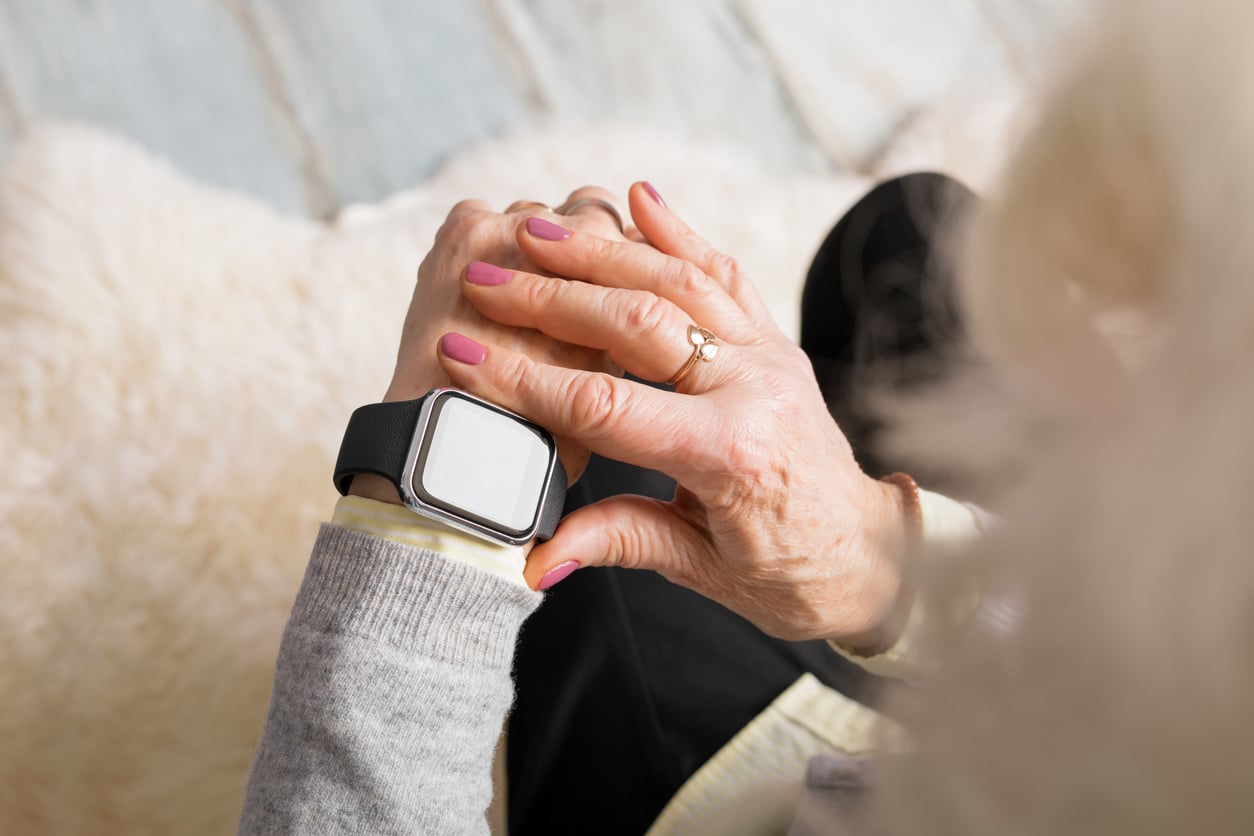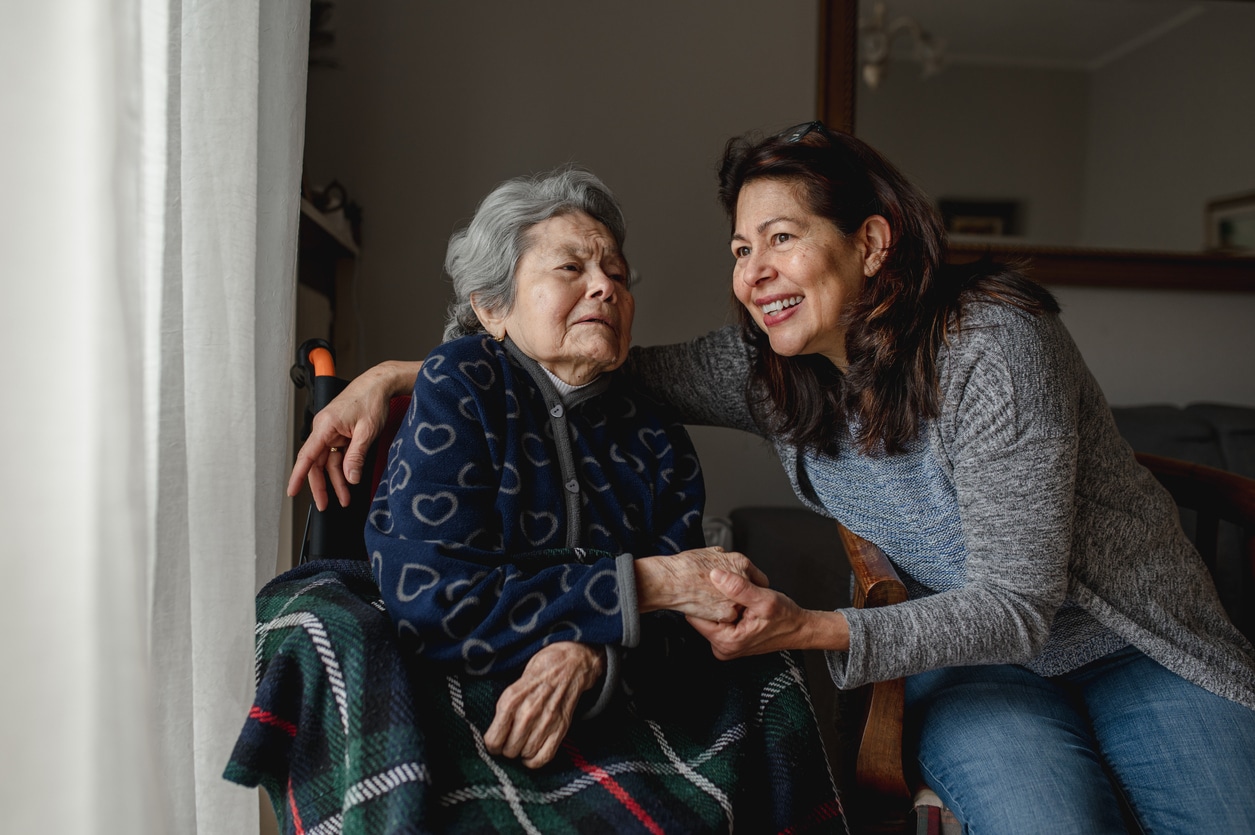Talking to your parent about getting a medical alert system can be a difficult, emotional conversation. Seniors may initially view med alert systems as a loss of their independence or as a sign that they cannot take care of themselves. However, if your mom or dad would benefit from wearing a medical alert device, starting this conversation is vital.
Begin with the Benefits of Medical Alert Systems
Help your parent understand that rather than a loss of independence, a med alert system is actually a great resource for remaining independent and living at home longer. Listen to any concerns or questions your parent may have, and let her know that you care about her deeply and want a solution that will keep her both happy and safe. Talk to her about how a medical alert device would give her the power to call for help whenever she needs it, even if she’s alone and can’t reach a phone. If she falls and is injured, she won’t have to wait for someone to check up on her before getting help. Waiting too long for help after a fall can mean the difference between a minor scrape and a critical problem.
Discussing these points with your loved one can help him realize the positive advantages, independence, and peace of mind he’ll gain from using a medical alert system.
A Cautionary Tale Demonstrates the Value
Storytelling, too, can be a powerful tool to illustrate the benefits of the device. Here’s one personal account of how a medical alert system could have prevented a traumatic situation: Gert, a lively, healthy octogenarian living alone, never thought a medical alert system was right for her. She was, after all, in great health, and she didn’t want to lose her independence.
Unfortunately, a few days after her 90th birthday party, Gert slipped and fell in her bathroom. She lay on the cold tile floor all day until her daughter’s regular afternoon phone call went unanswered. Then she finally received help.
By then she was in severe need of therapy, rehabilitation, and rest. Fortunately, she made a full recovery six months later. Having survived her terrible ordeal, Gert decided to take no more chances with her health. She still maintains the independence that she loves, but she also now wears her medical alert device day and night.
Her personal story also convinced two of her friends to get medical alert devices. Gert’s experience drove home the simple truth that a fall or other health incident can be bad enough without the additional and fully preventable trauma of waiting hours for help to arrive.
Put Your Parent First
If you talk to your parent understandingly and lovingly, you can help him see that a medical alert system will enhance his independence, not detract from it. Once he’s ready to make the decision to purchase a medical alert device, help with the setup process. Complete all the paperwork and make sure everything is operating properly before putting the device to use. Test the device thoroughly, and also double-check its emergency contact list.
By approaching this conversation openly and honestly, never dismissing your loved one’s concerns but highlighting the benefits of the device, both you and your parent will enjoy better peace of mind knowing that help in an emergency is just the push of a button away.



